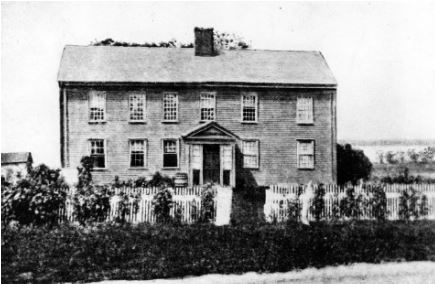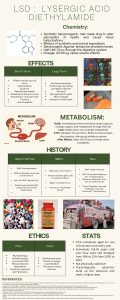How tragic is it when an innocent person goes to prison or is wrongfully convicted and sentenced to death? Our judicial system is suppose to be fair. However, there have been numerous cases in which a defendant has been pronounced guilty, but is later found to be innocent. The case of Thomas Cornell is an example of this. He was sentenced to death for murdering his own mother, Rebecca Cornell. There is no evidence for the death of Rebecca, yet I argue that a jury wrongfully convicted Thomas. What happened to Rebecca Cornell that night remains a mystery. However, it is possible that Rebecca committed suicide, and it is also possible that a group of people from the outside broke in and brutally murdered her. These plausible scenarios are, in fact, more probable than is the case for Thomas, her own son, murdering her.

Seventy-three year old Rebecca Cornell’s last moments on this Earth have had to have been one of the strangest, most peculiar moments ever. In early February 1673, Rebecca was found burnt, with flames all around her, lying some distance away from the hearth in the downstairs room of her house when Sarah, Thomas’ wife, had asked their son to ask Rebecca if she wanted something to eat. However, when he went downstairs, he noticed Rebecca’s body so badly burnt that he almost could not recognized her.1 Hours before this occurred, Thomas had spent more than an hour talking with his mother when he decided to go upstairs with his wife and kids. He had left his mother peacefully sitting by a large fireplace in her bedroom smoking a clay pipe.
According to the jury, Thomas Cornell may have murdered his mother, but there are other plausible explanations for what could have happened that night. For one, Rebecca could have committed suicide. James Moills, a good friend of Rebecca, testified that on the day of Rebecca’s death, he had noticed that Rebecca had looked ill, and did not seem herself on the day of her death. He then said that he continued to check up on her throughout the day to make sure that she was okay. Rebecca was ill the entire day on the day of her death. This meant that Rebecca could have fallen by the fireplace by herself. Ill people tend to feel clumsy due to how bad their body is at that state, resulting in less self control.2
Another possible reason for what could have happened on the night of Rebecca’s death is that she could have been murdered by a person or a group of people because two days after Rebecca’s death, John Briggs, Rebecca’s brother in law, claimed he was visited by Rebecca’s ghost, who stated, “Twice sayd, see how I was burnt with fire?” Rebecca was trying to tell her brother-in-law that her death was no accident. She failed to accuse the specific person of her death, but told Briggs that it was someone. Briggs took his testimony to the court and told the officials what he had seen. In the seventeenth century, protestants believed that the spirit of a dead person would appear if there had been “an injustice that might not be detected by other means.” They believed that such a spirit’s appearance was God’s way of ensuring that a murderer would be exposed.3 This then helps me conclude that Rebecca could have been murdered by a person or group of people, because two doors are connected to Rebecca’s bedroom. One is connected to the inside of the house while the other is connected to the outside. People from the outside had access to Rebecca’s bedroom, and if executed promptly, a number of people could have gone into Rebecca’s bedroom and murdered her and been able to escape swiftly without anyone having known. But if a person or a group of people did this, why did they do it? Could it have been because of her family’s reputation?4

Thomas Cornell Sr. and Rebecca Cornell lived in Portsmouth, Rhode Island, along with their four daughters and three sons. They formerly lived in Boston, where they had planned to stay for the rest of their lives when they arrived from England in 1627. Thomas Sr. and Rebecca Cornell bought a house and 112 acres in Boston from William Baulston, a settler who abandoned Boston to go to Portsmouth, a new settlement Rebecca’s brother, John Briggs, along with other settlers had found.5 In 1640, Thomas Sr. and Rebecca Cornell’s family decided that it was best to leave Boston and move to Portsmouth due to a number of fines Thomas Sr. had received. The fines consisted of drinking heavily at the pinnace, selling wine without a licence, and selling beer above the maximum allowable price. As soon as they arrived in Portsmouth they were welcomed, and they immediately made Thomas Sr. a freeman meaning he was able to purchase land in Portsmouth and within a year Thomas Sr. had been granted meadow land and made constable of Portsmouth. In the next couple of years, Thomas Sr. prospered in Rhode Island. The Governor Kieft of New Netherlands awarded Thomas a tract of land in 1646, seven months before the town of Portsmouth allotted him 100 acres of land where his widow would meet her tragic death more than a quarter century later.6
The jury was wrong in accusing Thomas for the murder of his own mother. However, the jury’s information about Thomas that led to his conviction was mainly based on Thomas’s relationship with his mother. Their relationship was filled with bitterness and hatred that was badly fueled with financial conflict.7 Despite Thomas living in his mother’s household, Rebecca made Thomas verbally pledge that he would pay rent to her while also providing and paying for a maid to take care of her during her remaining years.8 To continue this bitter relationship, in Rebecca’s will, all of her estate was to be equally divided among her children, whom she listed by name. All of her sons and daughters received a part of Rebecca’s property, such as clothes, valuable objects, and even one of her daughters, Mary, inherited her mother’s gold ring. All the children except for Thomas was mentioned in Rebecca’s will. Even Thomas’s first wife was mentioned in her will. This was because Thomas was the only son living with his mother, along with his wife whom Rebecca loved. Unfortunately, Thomas’ wife died a couple years after Rebecca signed her will. Shortly after, Rebecca was asked as to why she did not live with any of her other children. She said that if she knew Thomas’ wife was going to pass, she would have left years ago.9 This shows how bitter Thomas’ relationship with his mother really was. Despite their relationship, this does not mean that Thomas necessarily murdered his own mother. Almost every human beings argues with their mother, its just what we do; however, we don’t go and murder our own mothers.

Although the case of Thomas Cornell was closed, it was never solved. The jury found Thomas guilty of murdering his mother, but his decision was not certain. The testimony suggests that Thomas had the opportunity to kill his own mother; however, that doesn’t necessarily mean he did. There was no one there to see the death of Rebecca, nor was there a murder weapon found at the scene. To this day, this mystery has not found the proper reason as to what happened to Rebecca Cornell for her tragedy on February 8, 1673.
- Cornelia Hughes Dayton, “Getting Beyond ‘Who Done It,'” in Common-Place (2003): 1. ↵
- Elaine Forman Crane, Killed Strangely: The Death of Rebecca Cornell ( Ithaca: Cornell University Press, 2002), 114. ↵
- Cornelia Hughes Dayton, “Getting Beyond ‘Who Done It,'” in Common-Place (2003): 1. ↵
- Elaine Forman Crane, Killed Strangely: The Death of Rebecca Cornell ( Ithaca: Cornell University Press, 2002), 114. ↵
- Elaine Forman Crane, Killed Strangely: The Death of Rebecca Cornell ( Ithaca: Cornell University Press, 2002), 61-62. ↵
- Elaine Forman Crane, Killed Strangely: The Death of Rebecca Cornell ( Ithaca: Cornell University Press, 2002), 65. ↵
- Elaine Forman Crane, Killed Strangely: The Death of Rebecca Cornell ( Ithaca: Cornell University Press, 2002), 106. ↵
- Cornelia Hughes Dayton, “Getting Beyond ‘Who Done It,'” Common-Place (2003): 1. ↵
- Elaine Forman Crane, Killed Strangely: The Death of Rebecca Cornell ( Ithaca: Cornell University Press, 2002), 79-80. ↵



69 comments
Sofia Martinez
This is one of many cases that I have read where one is wrongfully accused of a crime, and it is still unbelievable to think that small information like having a bitter relationship with your own mother and having financial problems (why was is deemed as bad?)is one reason to falsely accuse someone without having useful factual evidence. I find this article interesting, among many others where they can’t find the person who actually committed the crime, is still an unsolved story.
Patricia Arechiga
This case was literally a movie. Though I didn’t necessarily see any evidence apart from a bitter relationship between two individuals, I do have to agree that Thomas was convicted wrongfully. All individuals argue, regardless of relationship status. However, just because two people argue does not mean that one is going to murder the other. What I found fascinating was how the brother saw the spirit of his sister basically foreshadowing the situation. I have always been fascinated by spirits and such so that pulled me more into the situation. For the time period, I can see why they convicted Thomas for murdering his mother plus not being on the will could have caused even further tension, but I do have to continue arguing that it does not necessarily mean it is the key to a murder.
Maria Garcia
Unsolved murders are sad to hear about, yet they are always the most interesting simply because there are so many different scenarios that could have happened, and even though they are sad to hear, it opens up room for others to do their own sort of investigation on it. It’s sad that her son was convicted so quickly even though it might not even been him who killed her, but that’s the harsh and terrifying part about our justice system. Fingers are pointed quickly at someone in order to make it appear as if justice is being served when the actual perpetrator may still be somewhere out there.
Colin cornell
Another cornell murdered his parents in saffron walde essex
Joshua Garza
This is a sad story to read. Just the fact that there is someone who got killed here but what makes it even more sad is the fact that this mystery case wasn’t properly solved and it was rather frustrating so they made a rash and hasty decision to put the case away and not have to deal with it anymore. This is a failure in our justice department in my opinion.
Rosario Moreno
It is really sad to see unsolved cases, like never getting that peace. I know that they had convicted Rebecca’s son as the murderer, but with cases like these what is ever to be known. When you had mentioned that it could have been her own self that fell ill as fell into the fire place I was like wow. Because that could have essentially changed Thomas’s life. Great article, good points made.
Amariz Puerta
This unsolved murder case gave me the chills by reading it. The title made me want to click and read and I am really happy i did. The question of if he did or did not kill his mother is still lingering in my head. Knowing the relationship between him and his mother was sought to be seen as bad but i didnt ever think it would be to the point he killed his mother. Loved this article totally recommend it to someone else.
Rebeca Escobar
This sheds light on the endless amount of cases that have gone unsolved, moreover where innocent people are accused and thrown in prison. Sometimes, there really is just no way of knowing what happened in some cases; however, that doesn’t mean you have to point fingers blindly just for the sake of having a suspect. This is so sad and I pray that the innocent people accused today are given their justice.
Ruben Basaldu
This is an interesting article because it still makes me wonder what exactly happened in this case. The case was never solved so we do not really know exactly what happened. Did he kill his mother? Did he not kill his mother? From what I gathered from the article Thomas and his mom did not have the best relationship so maybe he could have been the one to do it but that’s not enough to make a confirmation that he did do it. I would like to look n=more into this topic because now I am very interested.
Mariah Garcia
I look at the ID Network a lot and it is mostly on crimes that has happened and that have been solved. So, this article was very interesting since he was found guilty even though they didn’t have enough evidence. Usually when there isn’t enough evidence then the case is dismissed. But, this was one of the very rare cases which I find unfair. Even though Rebecca and Thomas had a rocky relationship that isn’t strong evidence. However, she not putting him on the will could’ve been his breaking point. But, in reality no one knows if he did or not and so this case was a misuse of power.